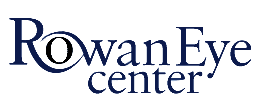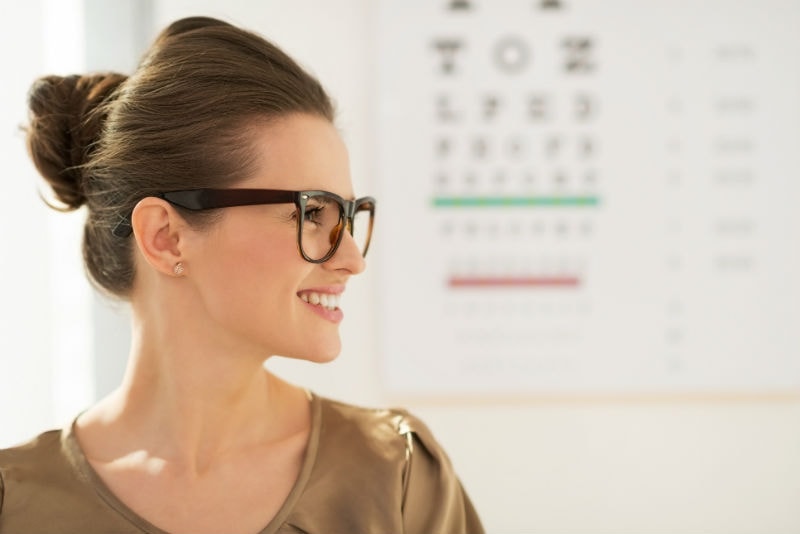What to Expect at an Optometrist Visit
Receiving a comprehensive eye exam each year is the most effective way for you to enjoy good vision throughout your life. Whether you haven’t received an eye exam for a few years or if you’re a new patient to Rowan Eye Center, here’s what you can expect when visiting an optometrist.
The Exam Process
Your comprehensive eye exam will take about an hour. If it’s your first visit, your exam time may take a little longer. During your comprehensive eye exam your optometrist will perform several different tests to check your vision and the overall health of your eyes. Here are some of the eye and vision tests you can expect during your appointment.
Visual Acuity
A visual acuity test measures the sharpness and clarity of your vision. During this part of your eye exam, your optometrist will ask you to cover one eye at a time and read letters of different sizes on a chart from a distance and up close.
Color Perception Testing
This part of the exam tests your ability to tell the difference between colors. With one eye covered, you will look at a series of cards with a multicolored dot pattern. Each color pattern contains a number or symbol, and you will be asked to identify each one.
Cover Test
The cover test measures how well your eyes work together and helps detect lazy eye, crossed eyes, or a decrease in overall depth perception. While focusing on a distant object, each eye is covered alternately.
Eye Movement Testing
During this simple test that measures the muscles controlling the movement of your eyes, your eye doctor will ask you to follow the movement of a pen or other small object.
Visual Field
To check your peripheral (side) vision, you will sit behind a computer screen and focus on a target in the middle of the screen. Different objects will be shown on-screen, and without moving your eyes, you will tell the eye doctor when you are able to see the objects in your side vision.
Eye Pressure Test
This test measures the pressure inside your eyes and is a common test for glaucoma. The eye pressure test can be performed with a machine that blows a small puff of air into your eye or with an instrument that looks like a pen that is placed on the surface of your eyeball. Both methods are painless.
Pupil Dilation
During this part of the exam, special eye drops are applied to dilate your pupils. By increasing the size of your pupil, your optometrist is able gain a better view of your retina and other tissues in the back of your eye. This test is optional, but we recommend it for patients who have risk factors for eye disease.
Refraction
This is a test that measures nearsightedness, farsightedness, presbyopia, or astigmatism. The eye doctor places an instrument in front of your eyes and shows you a series of different lens choices. You are asked which lens is clearer, and based on your responses, the eye doctor determines your eyeglass prescription.
Slit Lamp Exam
To examine all parts of your eye and evaluate their overall health, your eye doctor uses an instrument called a slit lamp. This piece of equipment magnifies your eyes many times and shines a bright light to allow your eye doctor to clearly see all parts of your eye. Based on this exam, your eye doctor can detect early signs of disease, such as macular degeneration, cataracts, and diabetic retinopathy.
What Should I Bring?
- If you have vision insurance, please bring your insurance card or other form of payment, if necessary.
- If you wear glasses or contact lenses, please bring them with you.
- A list of any supplements or any prescription medications you’re currently taking.
- A list of any specific questions you might have about your eye health.
- A list of any allergies or medical conditions.
- If your appointment includes having your pupils dilated, you may need to bring a friend or family member with you to drive you home. After having your pupils dilated, your vision will be blurry, and you may not be able to see well enough to drive safely.
- Since many eye diseases are hereditary, such as glaucoma and cataracts, please be aware of your family history.
Schedule Your Eye Exam
At Rowan Eye Center, we use the most up-to-date equipment to ensure that you receive the best optical care. If you are currently without an optometrist or would like to be more proactive about your eye health, we welcome you to contact us to schedule an appointment for a comprehensive eye exam.

